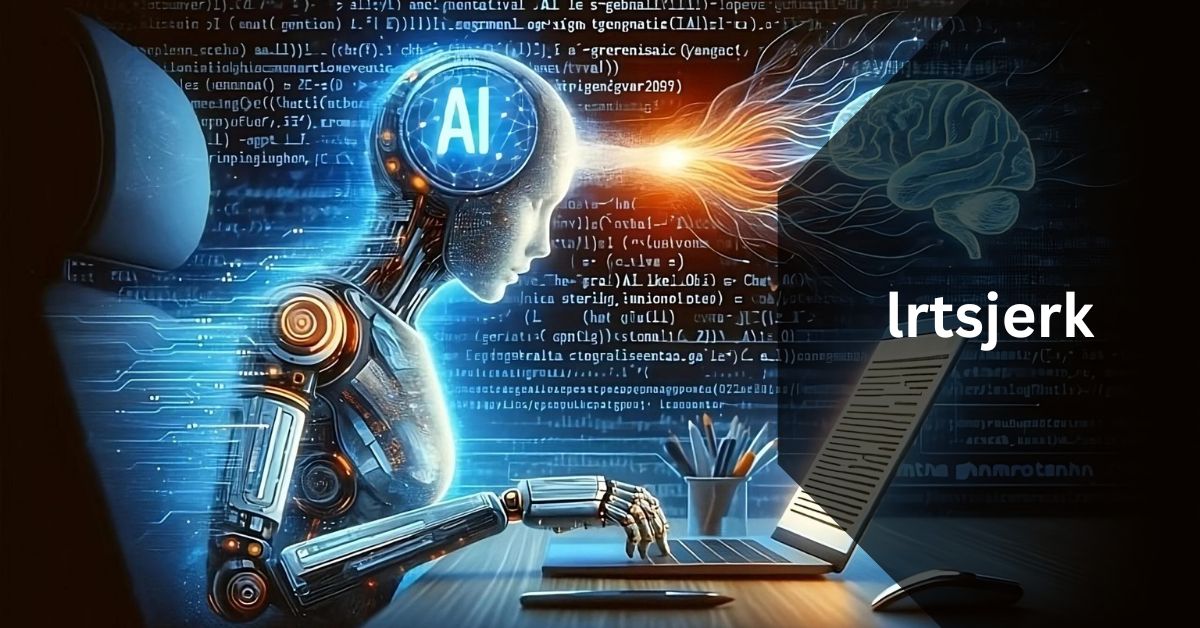In the expansive realm of digital communication, unconventional terms often emerge, inviting speculation and fascination within online communities.
“Lrtsjerk” is a recent addition to this lexicon of linguistic enigmas, appearing without a clear origin or established definition, yet captivating the imagination of enthusiasts, linguists, and internet users.
Amidst the digital linguistic labyrinth, ‘Lrtsjerk’ stands as a cryptic emblem, inviting intrepid explorers to unravel the threads of language evolution, weaving tales of intrigue and fascination.
The Veiled Genesis of “Lrtsjerk”
The enigmatic origins of “Lrtsjerk” continue to evade explanation, perplexing linguists and language enthusiasts alike.
Its sporadic and seemingly haphazard appearance across a spectrum of online platforms, devoid of clear contextual anchors or consistent usage patterns, has triggered a diverse range of speculative theories.
This lack of definitive contextual cues has propelled “Lrtsjerk” into an enigmatic and elusive sphere, intensifying the intrigue and leading to a multitude of conjectures regarding its possible meanings and elusive origins.
The elusive nature of its inception adds an extra layer of fascination, enveloping “Lrtsjerk” in an aura of mystery, intriguing those engrossed in unraveling linguistic puzzles.
Diverse Interpretations and Theoretical Speculations
Enthusiasts and experts from diverse disciplines have proposed multifaceted theories in an attempt to decode the cryptic nature of “Lrtsjerk.”
While some speculate it might serve as an acronym amalgamating elements from technology or gaming, others suggest it might originate from a specialized slang within an exclusive online community.
The lack of concrete definitions or discernible contextual clues has fostered imaginative interpretations. The term has been hypothesized as a code snippet in a programming language, an esoteric reference within a niche community, or even a cryptic phrase emanating from an imagined realm, illustrating the expansive spectrum of possibilities arising from linguistic ambiguity.
Read: next exam tak
Analyzing Linguistic Patterns and Contextual Ambiguity
Unraveling the meaning of “Lrtsjerk” demands meticulous scrutiny of linguistic patterns and contextual usage. Linguists and computational language analysts have meticulously examined potential linguistic roots, exploring phonetic resemblances or plausible word associations across a plethora of languages.
However, the absence of consistent usage or identifiable linguistic origins has presented formidable challenges, hindering a definitive resolution and leaving “Lrtsjerk” as an intricate linguistic conundrum that challenges conventional methodologies of linguistic analysis and interpretation.
Digital Landscape: A Catalyst for Linguistic Evolution
The digital revolution has fundamentally transformed the evolution and dissemination of language. Within the vast expanse of the internet, linguistic novelties can spontaneously emerge and propagate.
Terms like “Lrtsjerk” might originate in this dynamic landscape where language undergoes continual evolution, influenced by a convergence of cultures and subcultures.
The internet’s vastness and the ease of communication it facilitates contribute to the emergence and dissemination of neologisms, making the exploration of linguistic anomalies like “Lrtsjerk” both intriguing and challenging.
Community Engagement and Collaborative Speculation
The response of online communities to “Lrtsjerk” showcases the collective imagination and engagement surrounding linguistic enigmas. Discussions, speculations, and collaborative efforts to decipher the term underscore the communal aspect of language exploration.
It emphasizes how individuals synergize their efforts to untangle linguistic mysteries, fostering a shared sense of curiosity and engagement that transcends geographical and cultural boundaries.
Read: niles garden circus tickets
Potential Trajectories and Enduring Legacy
The trajectory of “Lrtsjerk” remains shrouded in uncertainty. It might eventually fade into obscurity, relegated to the digital archives. Conversely, it could ascend to recognition, earning a place in linguistic lexicons as a testament to the dynamism and complexity of language in the digital era, leaving an enduring legacy within the ever-evolving landscape of linguistic innovation.
Pros and Cons of “Lrtsjerk” in Digital Communication
Pros:
- Stimulates Intellectual Engagement: The enigmatic nature of “Lrtsjerk” encourages critical thinking, fostering discussions among linguists and enthusiasts, stimulating intellectual curiosity and exploration.
- Illustrates Linguistic Dynamism: Its emergence showcases the dynamic evolution of language in digital spaces, highlighting how words and phrases can spontaneously arise and spread.
- Cultivates Community Collaboration: The communal efforts to decipher “Lrtsjerk” foster a sense of camaraderie among online communities, encouraging collaboration and shared exploration.
Cons:
- Potential for Misinformation: Ambiguity surrounding “Lrtsjerk” may lead to the spread of misinformation or unreliable interpretations, contributing to confusion or misconceptions.
- Difficulty in Definitive Interpretation: The lack of consistent usage and contextual clues makes it challenging to arrive at a definitive interpretation, resulting in inconclusive resolutions.
- Frustration from Lack of Clarity: The elusive nature of “Lrtsjerk” might frustrate individuals seeking clarity or a concrete definition, potentially diminishing interest over time.
Conclusion: Navigating Linguistic Conundrums
Terms like ‘Lrtsjerk’ highlight language’s constant evolution, igniting discussions on its complexity and creativity. They prompt enthusiasts and scholars to explore linguistic nuances. As new terms emerge, sparking curiosity and debate, ‘Lrtsjerk’ remains a testament to language’s captivating evolution in the digital age.
Read: errordomain=nscocoaerrordomain&errormessage=could not find the specified shortcut.&errorcode=4
FAQs:
1. What does “Lrtsjerk” mean?
“Lrtsjerk” remains an enigmatic term, representing the limitless possibilities of language’s evolution and interpretation without a defined explanation.
2. Is “Lrtsjerk” an acronym or a code?
While it could potentially be an acronym or code, the absence of context contributes to its elusive nature, leaving its true nature undefined.
3. Where did “Lrtsjerk” originate from?
Its sporadic appearance across online platforms signifies the dynamic, organic evolution of language within digital spaces, yet its precise origin remains shrouded in mystery.
4. Why is “Lrtsjerk” significant?
“Lrtsjerk” serves as a symbol of linguistic intrigue, stimulating discourse and highlighting the intricate, ever-changing nature of communication in the digital era.
5. Will the meaning of “Lrtsjerk” ever be known?
While ongoing discussions persist, unraveling the true meaning of “Lrtsjerk” remains uncertain, embodying the enigmatic essence of linguistic exploration.
6. How does “Lrtsjerk” reflect language evolution?
Its emergence reflects the constant metamorphosis of language within digital landscapes, embodying the captivating, ever-evolving nature of linguistic expression.
7. Is “Lrtsjerk” likely to become part of common language usage?
The prospect remains uncertain, as “Lrtsjerk” navigates a path between obscurity and potential cultural adoption within linguistic discourse.
8. How do people react to “Lrtsjerk”?
It evokes diverse reactions, fostering curiosity, collaborative inquiry, and occasional frustration, showcasing the multifaceted engagement with linguistic mysteries.
9. Can anyone solve the mystery of “Lrtsjerk”?
Solving its enigmatic nature presents a challenging yet captivating pursuit, symbolizing the ongoing quest to decode the complexities of language evolution.
10. What can we learn from “Lrtsjerk”?
It underscores the intricacies of language evolution, emphasizing the perpetually evolving and interpretative nature of linguistic expression in digital spaces.




















+ There are no comments
Add yours